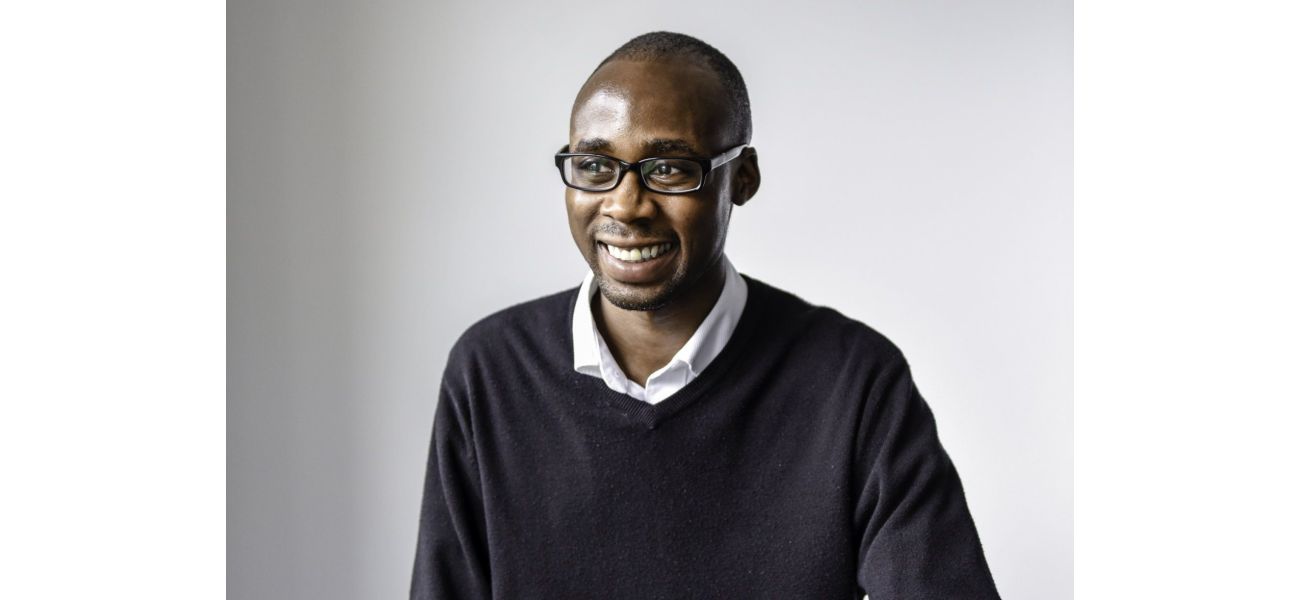By sticking to strict guidelines, I managed to save £100,000 by the age of 32.
If it's not necessary, I won't do it.
February 1st 2025.

As I reflect on my life at 32 years old, I have set a goal for myself to retire by the age of 58 with a pension pot of at least £500,000. It may seem like a daunting task, but my motto has always been to buy only what I need and invest the rest. This mindset has served me well, as I have already accumulated over £100,000 in retirement savings since my mid-20s, through contributions to my workplace and private pensions.
Retirement can be a scary thought, especially when reports show that millions of pensioners are living in poverty and many of us are not saving enough for our future. This is why I have taken action to avoid financial struggles in my later years. My careful handling of money began during my university days in 2011, when I received maintenance grants and saw large sums of money entering my bank account. It was then that I vowed to never take money for granted.
During my time at university, I also took on some casual shifts as a student brand ambassador on open days, which helped me earn some extra cash. Now, as it currently stands, I have an income of over £4,000 per month. This consists of roughly £3,000 from my employment, £500 from bank savings interest, and at least £500 from investing in undervalued stocks, a practice I started in 2015.
However, it was in my first job as a press officer in 2015 when I received my first pension statement that I became truly interested in pensions. Seeing the estimated value of my pension in retirement inspired me to increase my contributions, ensuring a comfortable retirement. As for my expenses, I allocate over £1,400 per month for housing, utilities, and food. I also set aside £750 each month for my pension and divide the rest between tax-free cash-ISAs, instant access and fixed-term bond accounts.
When it comes to my pension, I follow the ‘half your age’ rule, which means contributing half of my age into my pension every month to maximize its value. For instance, if I am 30 years old, I would pay 15% into my pension. This may seem like a strict savings strategy, but it is supported by my frugal daily habits.
I have coined the term "Emotional Depreciable Assets" to describe purchases that are driven by feelings and decrease in value over time. I avoid spending money on these types of purchases and instead focus on practicality and necessity. For example, I do not own a car and even helped a friend sell one of their two cars for £500 after explaining my concept of Emotional Depreciable Assets to them. I also do not go on foreign holidays often, as I have only flown abroad three times with my family, the last time being in 2019.
My commitment to frugality extends to my social life as well. While I can be extroverted, I do not feel like I am missing out on anything by spending more nights at home. I am content with a nutritious homemade meal and watching my favorite TV show, EastEnders. Surprisingly, when I explain my choices to others, I receive understanding responses. Some even share that they too have cut back on certain expenses due to the cost-of-living crisis.
Saving wisely during my younger years may seem challenging at times, but seeing six-figures in my pension pot reassures me that it is not only achievable by reducing wants and eliminating waste, but it is also worth every sacrifice. I would rather sacrifice some luxuries now so that I can reward myself later in life.
At the end of the day, having a six-figure pension pot is not just about looking good on paper. It is also an economic necessity for everyone, as we are living longer. Of course, not everyone has the means to build up a pension fund, especially those who do not earn enough. In these cases, I believe the state should increase tax relief for the lowest earners to boost their pension pots.
For those who are young and may not see the importance of a pension yet, I urge you to invest in it now, as your older self will thank you for it. After all, this article was originally published on January 6, 2025, and it is never too early to start planning for your financial future. Do you have a story or thoughts to share? I would love to hear from you. Share your views in the comments below.
Retirement can be a scary thought, especially when reports show that millions of pensioners are living in poverty and many of us are not saving enough for our future. This is why I have taken action to avoid financial struggles in my later years. My careful handling of money began during my university days in 2011, when I received maintenance grants and saw large sums of money entering my bank account. It was then that I vowed to never take money for granted.
During my time at university, I also took on some casual shifts as a student brand ambassador on open days, which helped me earn some extra cash. Now, as it currently stands, I have an income of over £4,000 per month. This consists of roughly £3,000 from my employment, £500 from bank savings interest, and at least £500 from investing in undervalued stocks, a practice I started in 2015.
However, it was in my first job as a press officer in 2015 when I received my first pension statement that I became truly interested in pensions. Seeing the estimated value of my pension in retirement inspired me to increase my contributions, ensuring a comfortable retirement. As for my expenses, I allocate over £1,400 per month for housing, utilities, and food. I also set aside £750 each month for my pension and divide the rest between tax-free cash-ISAs, instant access and fixed-term bond accounts.
When it comes to my pension, I follow the ‘half your age’ rule, which means contributing half of my age into my pension every month to maximize its value. For instance, if I am 30 years old, I would pay 15% into my pension. This may seem like a strict savings strategy, but it is supported by my frugal daily habits.
I have coined the term "Emotional Depreciable Assets" to describe purchases that are driven by feelings and decrease in value over time. I avoid spending money on these types of purchases and instead focus on practicality and necessity. For example, I do not own a car and even helped a friend sell one of their two cars for £500 after explaining my concept of Emotional Depreciable Assets to them. I also do not go on foreign holidays often, as I have only flown abroad three times with my family, the last time being in 2019.
My commitment to frugality extends to my social life as well. While I can be extroverted, I do not feel like I am missing out on anything by spending more nights at home. I am content with a nutritious homemade meal and watching my favorite TV show, EastEnders. Surprisingly, when I explain my choices to others, I receive understanding responses. Some even share that they too have cut back on certain expenses due to the cost-of-living crisis.
Saving wisely during my younger years may seem challenging at times, but seeing six-figures in my pension pot reassures me that it is not only achievable by reducing wants and eliminating waste, but it is also worth every sacrifice. I would rather sacrifice some luxuries now so that I can reward myself later in life.
At the end of the day, having a six-figure pension pot is not just about looking good on paper. It is also an economic necessity for everyone, as we are living longer. Of course, not everyone has the means to build up a pension fund, especially those who do not earn enough. In these cases, I believe the state should increase tax relief for the lowest earners to boost their pension pots.
For those who are young and may not see the importance of a pension yet, I urge you to invest in it now, as your older self will thank you for it. After all, this article was originally published on January 6, 2025, and it is never too early to start planning for your financial future. Do you have a story or thoughts to share? I would love to hear from you. Share your views in the comments below.
[This article has been trending online recently and has been generated with AI. Your feed is customized.]
[Generative AI is experimental.]
0
0
Submit Comment





